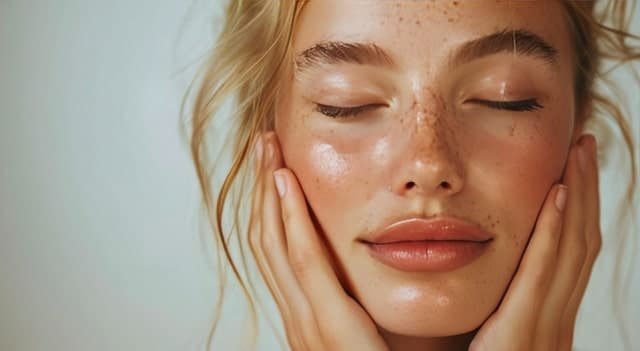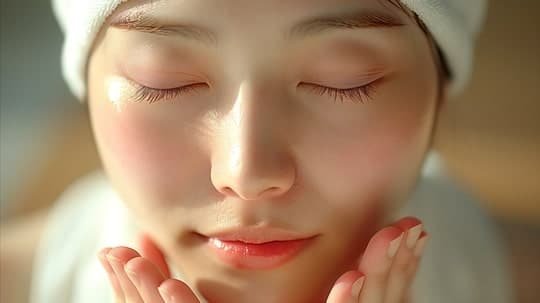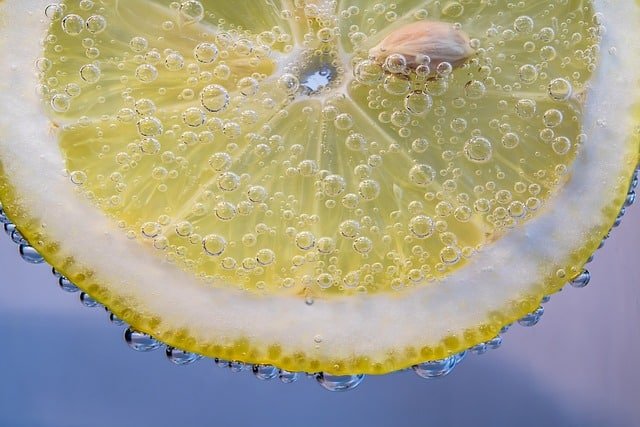In This Article
1. Introduction to Glowing Skin
Glowing, radiant skin is often seen as a sign of good health and beauty. Many factors contribute to healthy skin, such as genetics, diet, hydration, and lifestyle habits. But let’s not forget the power of a consistent and well-thought-out skincare routine. Whether your skin is dry, oily, sensitive, or a combination, tailoring your routine to meet its unique needs is important.
This guide will walk you through a step-by-step skincare routine to help you achieve and maintain that coveted glow. From cleansing to moisturizing and everything in between, we’ll cover all the essential steps and products you need for healthy, radiant skin. Plus, we’ll explore tips and techniques to enhance your regimen, including exfoliation, serums, masks, and sun protection. With the right approach and dedication, you can unlock the secret to luminous skin and enjoy the confidence that comes with it.
Importance of a glowing complexion
A glowing complexion can make you look and feel great. It gives you healthy, radiant skin and boosts your confidence. A good skincare routine, including cleansing, exfoliating, moisturizing, and sunscreen, can help with issues like dullness, fine lines, acne, and dry skin. Taking time to care for your skin can also improve your mental well-being. A regular skincare routine can be a form of self-care, giving you moments to relax and pamper yourself. Investing in quality skincare products and treatments improves overall health and happiness, helping you look vibrant and youthful daily.
Benefits of a consistent skincare routine
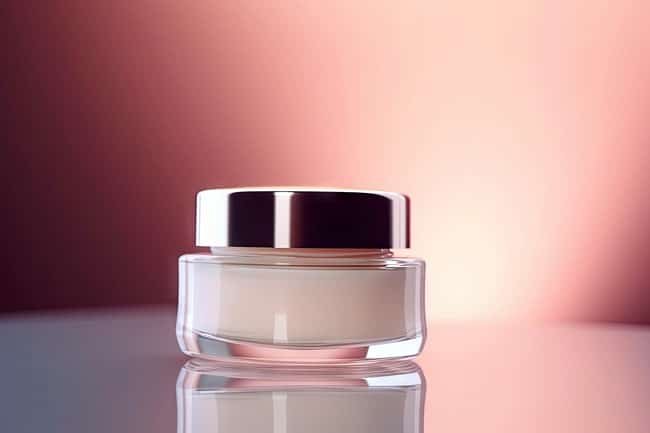
Consistency is key to achieving and keeping great skincare results. Some products or treatments might give quick results, but healthy skin needs time and dedication. Stick to a regular skincare routine, and you’ll see better-looking skin and enjoy long-term benefits like fewer signs of aging, fewer breakouts, and a glowing complexion.
- Clearer Skin: – Regularly washing and exfoliating your skin helps eliminate dirt, oil, and dead skin cells that can block your pores and cause breakouts, leading to clearer and healthier skin.
- Hydrated Skin: Moisturizing often keeps your skin hydrated, soft, youthful, and glowing, and it prevents dryness.
- Anti-Aging Effects:– Good anti-aging products daily can help reduce fine lines, wrinkles, and sunspots, giving you a younger, glowing look.
- Improved Texture: Regular exfoliation smooths out rough skin, gives you a more radiant complexion, and helps your skincare products absorb better.
- Even Skin Tone: – Serums and masks can really help improve your skin tone, reducing dark spots, hyperpigmentation, and uneven skin texture for a more radiant look.
- Protection Against Environmental Damage: Sunscreen protects your skin from harmful UV rays that can cause aging, damage, and skin cancer. Using it regularly helps prevent dark spots and sunburn and keeps your skin looking young and healthy. It’s important to apply it every day, no matter the weather.
2. Cleansing
The initial and crucial step in any skincare routine is cleansing your face. This step removes dirt, oil, bacteria, makeup, and dead skin cells that build up during the day. Washing your face helps clear your skin and prevents clogged pores and breakouts. It also prepares your skin for other products, making them work better. Without this step, your skin might not get the full benefits of your other treatments. So, always wash your face for healthier and more radiant skin!
- Pick a gentle face wash that suits your skin type (like gel or foam for oily skin and cream or lotion for dry skin). This helps clean your skin without taking away its natural moisture.
- Wet your face thoroughly with lukewarm water to prepare your skin for cleansing.
- Put a gentle cleanser on your clean hands and rub it on your face in circles, making sure to cover everywhere.
- Rinse off thoroughly with lukewarm water.
- Pat dry with a clean towel.
- Recommended frequency: Twice a day
Note: Don’t use harsh soaps or scrub too hard; they can remove your skin’s natural oils, making it dry and irritated.
Choosing The Right Cleanser
Like I said before, picking the right cleanser for your skin type is important for keeping your skin healthy and glowing. Here’s a quick and easy guide to help you find the perfect one for your needs:
- Oily Skin: Look for gel or foaming cleansers with strong ingredients like salicylic acid or tea tree oil. These can help control extra oil, unclog pores, and fight acne-causing bacteria.
- Dry Skin: – Cream or lotion cleansers with hydrating ingredients like hyaluronic acid or ceramides are great for dry skin. These ingredients help keep your skin moist and soft. Avoid harsh chemicals like sulfates that can dry out your skin and cause irritation. For the best results, choose products made for sensitive skin.
- Sensitive Skin: – Pick gentle, fragrance-free cleansers to avoid irritation and keep your skin’s natural barrier healthy. Also, choose non-comedogenic formulas to prevent breakouts and keep your skin clear.
- Combination Skin: Pick a gentle cleanser that’s good for all skin types and works on both oily and dry areas. Gel or foaming cleansers with natural ingredients like green tea or chamomile are great choices because they soothe the skin and remove dirt, oil, and impurities. Also, a cleanser with hydrating properties will keep your skin balanced and healthy, giving you a glowing complexion.
Morning vs. evening cleansing routines
Wondering if you need to clean your face twice a day? Yes, you do! Washing your face in the morning removes sweat, oil, and impurities from the night, setting the stage for sunscreen and makeup. It’s important to cleanse away dirt, pollutants, makeup, and dead skin at night. This helps your skin breathe, repair, and absorb nutrients better while you sleep, leading to a healthier, more radiant complexion. Regular cleansing also helps prevent breakouts and other skin problems, making it a key step in your daily skincare routine.
Tips for a thorough cleanse
- Don’t use hot water: It can dry your skin by removing its natural oils.
- Use warm water: It opens up pores, so products work better.
- Don’t rub too hard: Gently rub the cleanser on your skin in circles, avoiding the area around your eyes. Rubbing too hard can irritate and hurt your skin.
- Take off all makeup: Use a makeup remover or cleansing oil to remove any makeup before washing your face with a cleanser. This helps keep your pores clean and prevents breakouts.
- Don’t forget your neck: When washing your face, clean your neck, too! The skin there is thinner and can show signs of aging and dryness more quickly.
- Rinse well: Leftover cleanser can block pores and cause irritation or pimples.
- Pat dry: Don’t rub your face with a towel; it can be rough on your skin. Instead, gently pat it dry to avoid pulling or tugging.
Cleansing is a key part of any skincare routine for clear and glowing skin. Finding the right cleanser for your skin type and using it properly can really improve your complexion. So don’t skip this important step! Always clean your face before bed, even if you’re tired. Your skin will thank you! Stay tuned for more tips on how to keep your skin looking great all year round.
3. Exfoliating
Exfoliating is a key part of any good skincare routine. It means gently removing dead skin cells from your skin’s surface to reveal brighter, smoother skin underneath. Regular exfoliation can improve skin texture, reduce dullness, and even out skin tone for a more radiant look. Here’s why exfoliating is great:
- It unclogs pores and helps prevent acne breakouts.
- It helps other skincare products work even better.
- It promotes collagen production for firmer, younger-looking skin.
- It can reduce fine lines and wrinkles over time.
Make exfoliating a regular skincare routine to enjoy these awesome benefits!
- Helps products work better: Exfoliating removes dead skin cells so your skincare can go deeper and be more effective.
- Stops clogged pores and breakouts: Dead skin cells can mix with oil and dirt on your skin, causing clogged pores and breakouts. Exfoliating helps prevent this.
- Boosts blood flow: The gentle scrubbing motion of exfoliating can improve circulation and promote healthy skin.
- Makes fine lines look smaller: Exfoliating regularly boosts collagen, which helps reduce the look of fine lines and wrinkles.
Types of Exfoliants
You’ll come across two main types of exfoliants: physical and chemical.
Physical Exfoliants
Use gentle scrubs to remove dead skin cells from your skin’s surface for physical exfoliants. These scrubs can be fine or slightly rough. Physical exfoliants include facial scrubs with microbeads or natural particles like crushed apricot seeds or walnut shells. Manual and electronic brushes can help scrub away dead skin cells more effectively. Cleansing tools like sonic devices use vibrations to clear out impurities and dead skin cells, giving you a smoother and more radiant complexion. Using physical exfoliants regularly can improve skin texture, unclog pores, and help skincare products work better. However, be careful not to overdo it, as too much exfoliation can cause irritation and damage your skin.
Chemical Exfoliants
Chemical exfoliants use gentle acids like AHAs and BHAs to remove dead skin cells without scrubbing or rubbing. They come in different forms, each with its own benefits for various skin types.
- Glycolic Acid:
- Source: Derived from sugar cane.
- Benefits: Suitable for all skin types.
- Mechanism: Penetrates deeply into the skin, providing a thorough exfoliation.
- Usage: Ideal for individuals looking for overall skin improvement.
- Salicylic Acid:
- Source: A type of BHA.
- Benefits: Best suited for oily or acne-prone skin.
- Mechanism: Penetrates pores, unclogs them, and helps reduce breakouts.
- Usage: Effective for treating acne and blackheads.
- Lactic Acid:
- Source: Derived from milk.
- Benefits: Ideal for sensitive skin.
- Mechanism: Gently removes dead skin cells and brightens dull skin.
- Usage: Gentle yet effective, making it suitable for sensitive skin.
Important Considerations:
- Patch Test: Always conduct a patch test when trying any new exfoliating product to ensure it suits your skin.
- Sensitive Skin: If you have sensitive skin, start with a low concentration of active ingredients and gradually increase as your skin builds tolerance.
- Sun Protection: Skin becomes more sensitive to the sun after using chemical exfoliants. Following up with sunscreen to protect your skin from UV damage is crucial.
By learning about different chemical exfoliants and following these tips, you can easily add exfoliation to your skincare routine for healthier, brighter skin.
Benefits of exfoliation
- Smoother Skin: Exfoliating helps remove dead skin cells and unclogs pores, giving you smoother and more radiant skin.
- When you exfoliate, you eliminate the outer layer of dead skin cells that can make your skin look dull and rough. This allows the fresh, healthy skin underneath to show, making your skin look smoother and brighter.
- Brighter Complexion: Getting rid of dull, dry skin through exfoliation helps brighten your skin for a more glowing look.
- Dead skin cells and dryness can make your skin look lackluster. Regular exfoliation removes these dull layers, enhancing your skin’s natural glow and giving you a brighter complexion.
- Helps with Acne: Regular exfoliation keeps your pores clean and clear, helping to prevent acne breakouts.
- Acne often happens because of clogged pores filled with oil, dirt, and dead skin cells. Exfoliating helps clear these blockages, reducing the chances of acne.
- Anti-Aging Effects: Exfoliating boosts collagen production, which can help reduce fine lines and wrinkles.
- Collagen is like the scaffolding that keeps your skin firm and elastic. By exfoliating, you can boost collagen production, improve skin texture, and reduce signs of aging like wrinkles.
- Better Product Absorption: Removing dead skin cells allows skincare products to penetrate deeper and work better.
- Exfoliation helps skincare products like moisturizers and serums absorb more effectively, giving better results.
- Exfoliating is a key step for healthy, glowing skin. Whether you use a scrub or a chemical exfoliant, include it in your regular skincare routine for the best results.
- Regular exfoliation maintains skin health and appearance. Scrubs use small granules to manually remove dead skin, while chemical exfoliants use ingredients like AHAs or BHAs to dissolve dead cells.
- Remember to be gentle and consistent, and apply sunscreen after exfoliating to protect your new skin from sun damage.
- Over-exfoliating can irritate and damage your skin. Be gentle, and don’t exfoliate too often. Newly exfoliated skin is more sensitive to the sun, so use sunscreen to protect it.
- With regular exfoliation, you can enjoy smoother, brighter, and healthier skin all year round!
- By exfoliating regularly, you’ll keep revealing fresh, healthy skin and maintain a radiant complexion throughout the year.
- So don’t forget to exfoliate regularly for the best results in your skincare routine. Happy glowing!
- Consistent exfoliation can make a big difference in your skin’s appearance and health, giving you a glowing complexion.
4. Toning
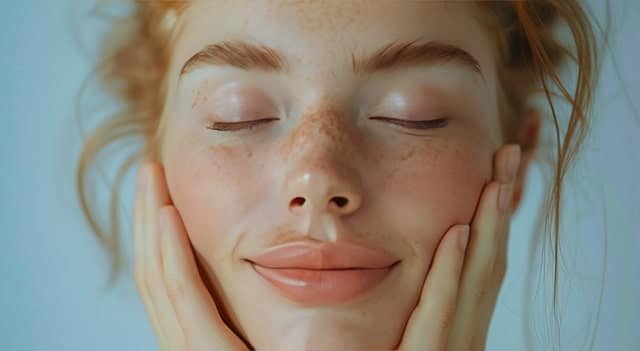
Why Toning is Important in Your Skincare Routine
Toning is a step in skincare that people often skip, but it’s really important. Here’s why you should always use toner and how it helps your skin:
What is Toning?
Toning means using a toner to balance your skin’s pH levels and remove leftover dirt after washing your face. It helps your skin absorb other skincare products better and adds extra benefits to your routine.
Benefits of Toning
Balances pH Levels
Washing your face can mess with your skin’s pH levels. Healthy skin has a pH of 4.5 to 5.5, which is slightly acidic. Toning brings it back to this level, making your skin less likely to get irritated or break out.
Tightens Pores
Some toners have ingredients that make your pores look smaller. This gives your skin a smoother look and helps prevent dirt from getting in, which can cause breakouts.
Hydrates
This prevents dryness and keeps your skin looking healthy.
Prepares for Other Skincare Products
Using toner before other skincare products helps them absorb better. It removes any leftover residue, so your skin is ready for the next steps.
How to Use Toner
Cleanse Your Face
Begin with a gentle cleanser to wash away the day’s dirt and makeup.
Apply Toner
Swipe some toner on a cotton pad over your face, avoiding the eyes. Or, pour some toner into your hands and pat it onto your skin.
Let the Toner Dry
Wait 1-2 minutes for the toner to dry before using other skincare products.
Frequency
Use toner twice daily, in the morning and at night, after cleansing.
Important Tips
Choose an Alcohol-Free Toner
Avoid toners with alcohol, as they can dry out and irritate your skin.
Avoid Harsh Ingredients
Stay away from toners with fragrances or harsh chemicals that can cause irritation.
Sensitive Skin
Look for gentle, soothing toners that won’t irritate your skin.
Oily Skin
Use toners with salicylic acid to control excess oil.
Dry Skin
Pick hydrating toners with ingredients like hyaluronic acid or glycerin.
5. Moisturizing
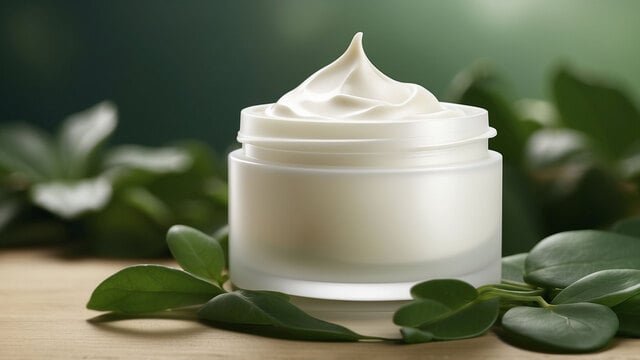
Why Moisturizing is Essential for Healthy Skin
Moisturizing is a key part of taking care of your skin. Let me tell you why it’s so important and how it benefits you:
What is Moisturizing?
Moisturizing means adding moisture to your skin, usually through a cream or lotion. It helps keep your skin hydrated, soft, and supple.
Benefits of Moisturizing
Hydrates Your Skin
Moisturizing keeps your skin hydrated, preventing dryness and flakiness. This makes your skin look smooth and healthy. Without enough moisture, your skin can become rough, itchy, and more prone to cracking. By moisturizing regularly, you help your skin stay elastic and smooth.
Protects Your Skin
Moisturizer acts like a shield for your skin, protecting it from pollution and harsh weather. It keeps harmful substances from getting in and causing damage. It also helps your skin’s natural barrier stay strong, preventing bacteria and other irritants. A strong skin barrier helps prevent infections and keeps your skin healthy.
Anti-aging Effects
A good moisturizer can help reduce signs of aging like wrinkles, fine lines, and age spots. It keeps your skin plump and supple, making these signs much less noticeable. Our skin loses moisture and elasticity as we age, leading to wrinkles. A moisturizer can replenish that lost moisture, making your skin look younger and more vibrant.
Improves Skin Texture
Using a moisturizer regularly smooths out rough or uneven skin. This gives you a more even complexion and radiant skin. If your skin feels rough or bumpy, it might need more moisture. Moisturizing helps to smooth out these imperfections, making your skin feel soft and look more even-toned.
Prepares for Makeup
Ever notice how makeup looks cakey on dry skin? Moisturizing before applying makeup creates a smooth base, helping your foundation glide evenly. When your skin is well-hydrated, makeup applies more smoothly and lasts longer, preventing it from settling into fine lines and dry patches.
How to Moisturize
Cleanse Your Face
Start by gently cleansing your face to remove dirt or makeup. This prepares your skin to absorb the moisturizer better. Use a cleanser that suits your skin type to avoid irritation.
Apply Moisturizer
Take a small amount of moisturizer and gently massage it onto your face in circular motions. Don’t forget your neck! Using gentle, upward strokes helps with circulation and absorption.
Frequency
Moisturize twice daily, in the morning and at night, after cleansing. This keeps your skin hydrated all day and night. In the morning, use a lightweight moisturizer with SPF for sun protection. At night, use a richer formula to replenish your skin.
Important Tips
How to Pick the Perfect Moisturizer for Your Skin
Finding the perfect moisturizer can be tricky, but it’s all about knowing your skin. If you have oily skin, go for a lightweight, non-comedogenic moisturizer. A thicker, more hydrating formula is your best bet for dry skin. And for those with combination skin, you might need different moisturizers for different areas of your face. Take these tips to heart, and your skin will thank you!
SPF is Key
Look for moisturizers with SPF to protect against UV rays. Sun damage is a major cause of premature aging. A moisturizer with SPF simplifies your routine by combining hydration and sun protection.
Don’t Forget About Your Hands and Body
Moisturizing isn’t just for your face. Remember to moisturize your hands and body to keep them soft and hydrated. Our hands and body are exposed to environmental stress and frequent washing, which can strip away natural oils. Use a good body lotion and hand cream to prevent dryness.
Drink Plenty of Water
Drinking enough water helps keep your skin hydrated from within. Hydration isn’t just about external products; it’s also about nourishing your body from the inside. Drinking plenty of water helps maintain your skin’s moisture balance and health.
6. Sun Protection
Why Protecting Your Skin from the Sun Matters
Sun exposure can harm your skin, so it’s essential to protect it. Here’s why sun protection matters for keeping your skin healthy:
The Dangers of Sun Exposure
Be careful not to spend too much time in the sun; it can lead to:
- Premature aging color: The sun breaks down collagen and elastin in your skin, causing wrinkles, fine lines, and age spots.
- Sunburns: Too much sun can lead to painful burns, redness, and peeling.
- Skin Cancer: Too much UV exposure increases the risk of skin cancer like melanoma, basal cell carcinoma, and squamous cell carcinoma.
- Uneven skin tone: The sun can cause dark spots and uneven colour in your skin.
Why Sun Protection is Essential
Given these risks, it’s important to include sun protection in your daily routine. Here are some easy ways to protect your skin:
- Sunscreen: Don’t forget to use a good broad-spectrum sunscreen with at least SPF 30 daily, even when it’s cloudy. And remember to reapply it every couple of hours, especially after swimming or sweating. Stay safe and protect your skin!
- Protective Clothing: Wear long sleeves, pants, and wide-brimmed hats. Choose clothes with UV protection.
- Shade: Stay in the shade between 10 AM and 4 PM when the sun is strongest.
- Sunglasses: Wear sunglasses with UV protection to protect your eyes.
- Avoid Tanning Beds: Tanning beds emit harmful UV radiation that can damage your skin and increase cancer risk.
By following these tips, you can keep your skin healthy and youthful. Remember, sun protection is important all year round, not just in the summer or at the beach.
7. Targeted Treatments
Sometimes, our skin needs a little extra help to look great. That’s where special treatments come in. These products target skin issues like acne, dark spots, or wrinkles. Here are some common treatments and how they can help your skin:
Acne Treatments
Acne affects people of all ages and happens when pores get clogged with oil and dead skin, causing breakouts and inflammation. Some effective acne treatments include:
- Benzoyl Peroxide: Fights off acne-causing bacteria and helps keep your skin clear of breakouts.
- Salicylic Acid: Exfoliates skin and unclogs pores.
- Retinoids: Derived from vitamin A, help unclog pores and reduce inflammation.
Dark Spot Treatments
Dark spots, or hyperpigmentation, can be caused by sun damage, acne scars, or hormonal changes. Some treatments for dark spots include:
- Vitamin C: Brightens skin and fades dark spots.
- Hydroquinone: Lightens dark spots by reducing melanin production.
- Azelaic Acid: Targets both acne and dark spots.
Anti-Aging Treatments
Signs of ageing like fine lines, wrinkles, and saggy skin can be treated with:
- Retinoids: Also good for acne, they help reduce fine lines and wrinkles.
- Hyaluronic Acid: Plumps and hydrates skin, reducing fine lines.
- Vitamin C: An antioxidant that helps reduce signs of ageing and brightens dark spots.
Talk to a dermatologist or research products with these ingredients to determine which treatment is best for you. Always test a new product on a small skin area first and follow the instructions. With consistent use, these treatments can help improve how your skin looks and feels.
Conclusion
Taking care of your skin is essential for its health and looks. Follow these steps for simple and effective skincare. Your skin will look and feel great with the right products and habits routine:
- Step 1: Cleanse – Start your day and end your night with a gentle cleanser to keep your skin feeling fresh and clean.
- Exfoliate: Exfoliate once or twice a week.
- Tone: Use a toner after cleansing to balance your skin’s pH.
- Moisturize: Apply moisturizer twice a day.
- Protect: Wear sunscreen every day, even when it’s cloudy.
- Targeted Treatments: Use treatments for specific skin issues.
You can have healthy, glowing skin by following these steps and tips, like drinking lots of water and using SPF! Also, talk to a dermatologist for personalized advice and adjust your routine as needed. Your skin will look great with the right products and habits! So, take care of your skin, and you’ll enjoy a radiant and healthy glow!
| Key Point | Description |
|---|---|
| Importance of Glowing Skin | A glowing complexion boosts confidence, indicates good health, and can be achieved through a consistent skincare routine. |
| Benefits of Consistent Routine | Consistent routine leads to clearer skin, hydration, anti-aging effects, improved texture, even skin tone, and protection from environmental damage. |
| Cleansing | Removes dirt, oil, bacteria, and prepares skin for other products. Use a gentle cleanser suitable for your skin type. |
| Exfoliating | Removes dead skin cells, unclogs pores, smoothens texture, and boosts radiance. Use physical or chemical exfoliants suitable for your skin type. |
| Toning | Balances skin’s pH, tightens pores, hydrates, and prepares skin for better product absorption. Use an alcohol-free toner. |
| Moisturizing | Hydrates, protects, reduces signs of aging, improves texture, and preps skin for makeup. Choose a moisturizer based on your skin type. |
| Sun Protection | Protects from premature aging, sunburns, skin cancer, and uneven skin tone. Use broad-spectrum sunscreen, protective clothing, and seek shade. |
| Targeted Treatments | Address specific concerns like acne, dark spots, or wrinkles with products containing ingredients like benzoyl peroxide, vitamin C, retinoids, etc. |
| Consistency and Patience | Be consistent with the routine and give new products 4-12 weeks to see results. |
| Personalization | Consult a dermatologist for personalized advice and adjust the routine as needed for your skin type and concerns. |
Frequently Asked Questions
1. How often should I wash my face?
Wash your face twice daily – once in the morning and once before bed – to eliminate dirt, oil, and impurities.
2. Is it necessary to exfoliate?
Exfoliating once or twice a week helps remove dead skin cells and unclog pores, making your skin smoother and more radiant.
3. Can I skip moisturizer if I have oily skin?
No, even oily skin needs moisturizer. Use a lightweight, non-comedogenic one to hydrate your skin without clogging pores.
4. How important is sunscreen in my skincare routine?
Sunscreen is a must-have. It shields your skin from those nasty UV rays that cause aging, sunburn, and even skin cancer. Make it a daily habit, rain or shine. Your future self will thank you!
5. What’s the difference between a serum and a moisturizer?
Serums are lightweight and packed with active ingredients for specific issues like wrinkles or dark spots, while moisturizers keep your skin hydrated and protect its barrier.
6. How can I prevent dark circles under my eyes?
Sleep well, stay hydrated, and use eye creams with ingredients like caffeine or vitamin C to reduce dark circles.
7. Are natural or organic products better for my skin?
Not always. What matters is the product’s formulation and ingredient concentration, whether natural, organic, or synthetic.
8. What should I do if I have sensitive skin?
If you have sensitive skin, stick to gentle, fragrance-free products with calming ingredients like chamomile or aloe vera. Steer clear of harsh scrubs and anything with alcohol or strong fragrances. Treat your skin with care!
9. How long does a new skincare product take to see results immediately?
It can take 4 to 12 weeks to see noticeable results. Be consistent and patient when trying new skincare products.
10. Can I use acne treatment products every day?
It depends on the product and your skin’s tolerance. Start with a few times a week and increase gradually if your skin can handle it without irritation.
11. What should I do if a product causes irritation or breakouts?
Stop using the product immediately, and talk to a dermatologist if the irritation continues. Always patch-test new products to avoid bad reactions.

Olivia
Dr. Olivia is a dedicated dermatologist and skincare expert. With a medical degree from University of Sheffield Medical School, she specializes in treating a variety of skin conditions, including acne, eczema, and skin cancer. Dr. Olivia offers personalized treatment plans to promote healthy, radiant skin and is committed to staying current with the latest advancements in dermatology.

